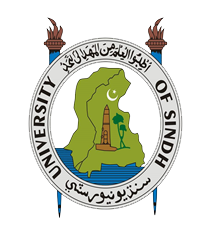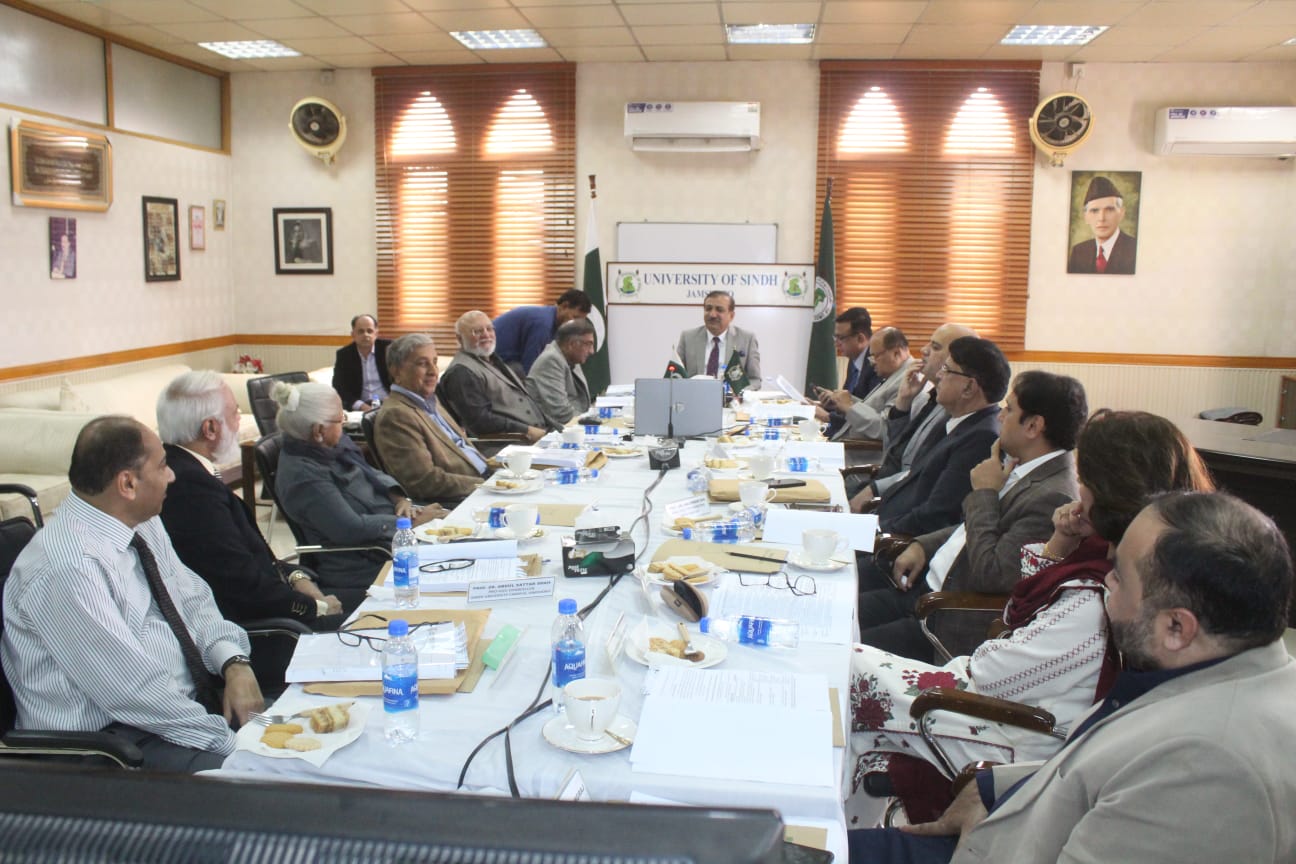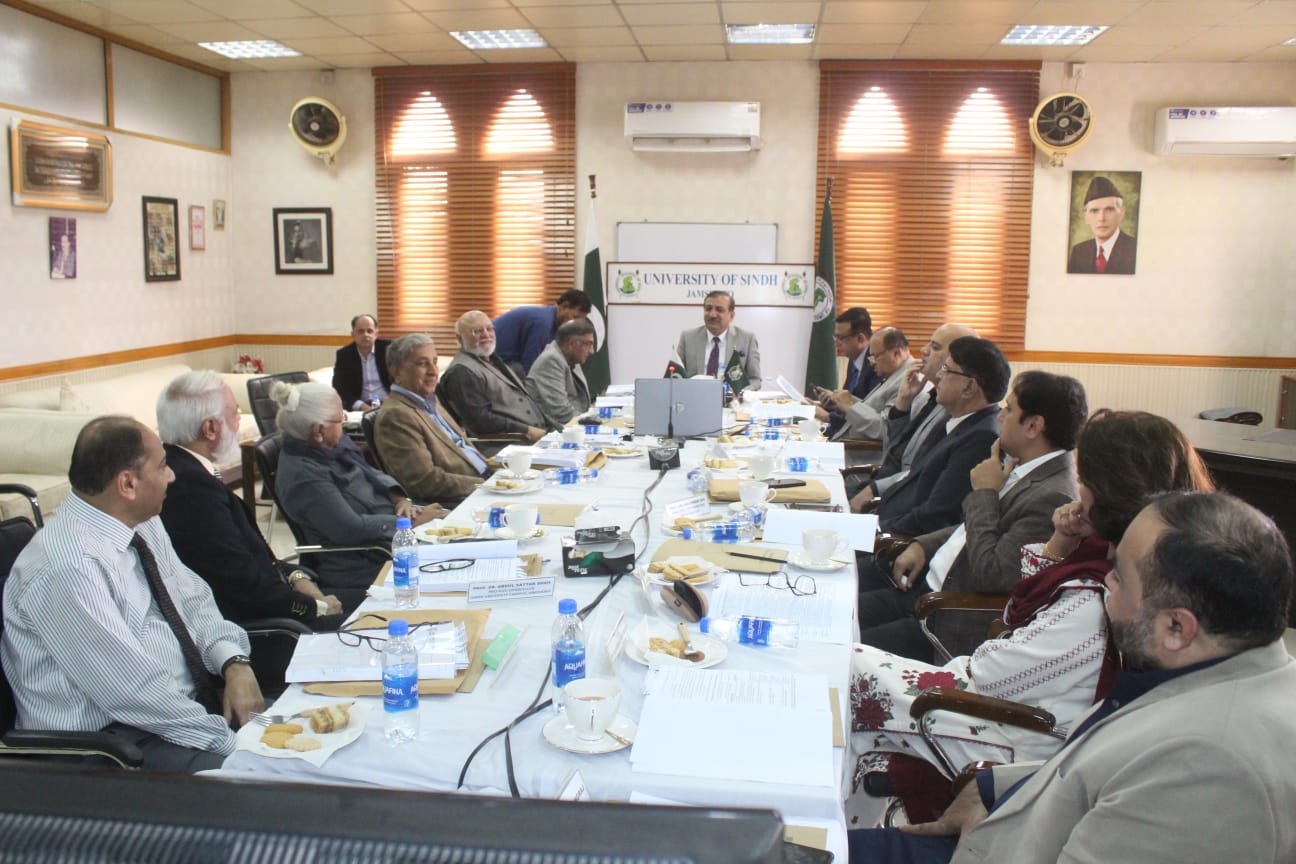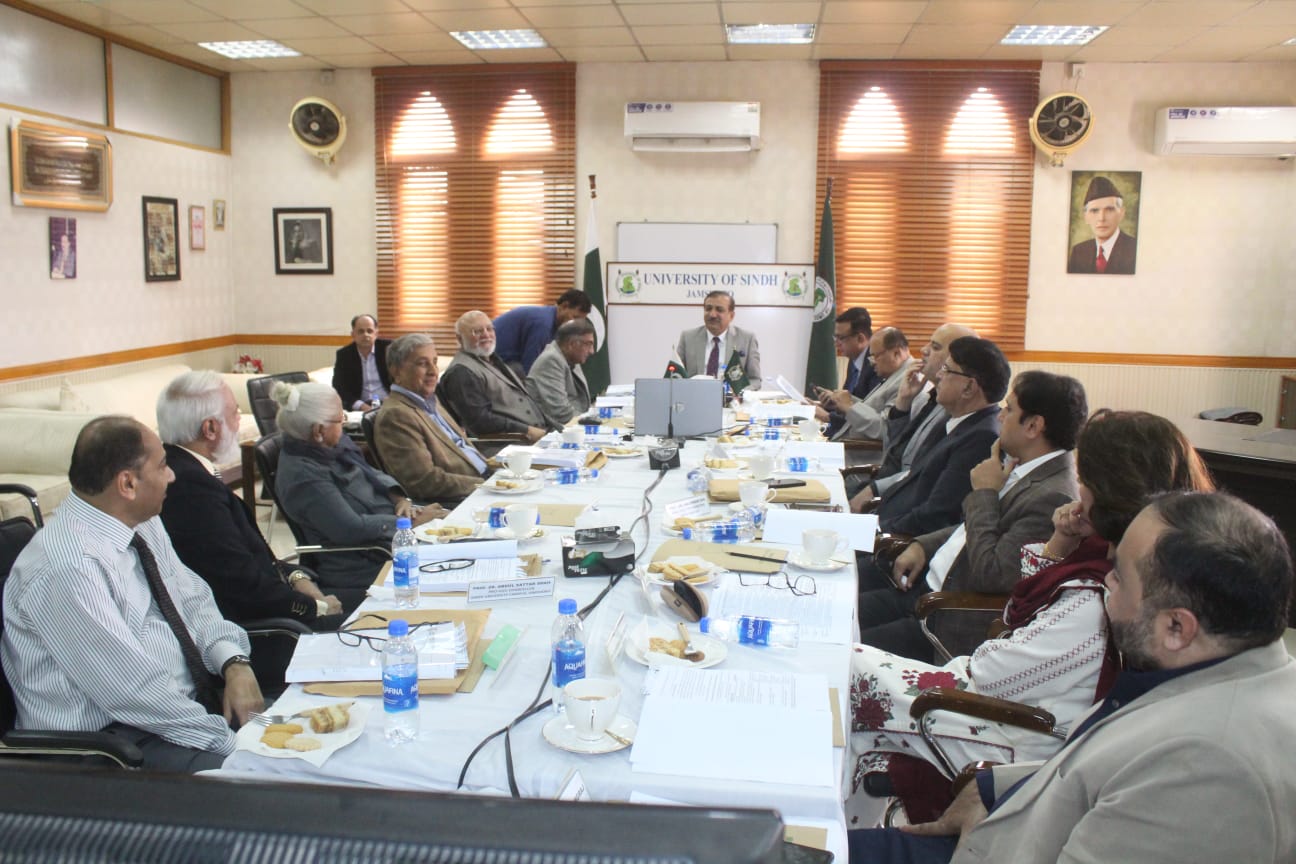
SU’s two scholars defend their PhD theses successfully, qualify for award of doctorate degrees
As many as two research scholars Syed Sharaf Ali Shah and Abdul Qayoom Mugheri successfully defended their PhD theses at the public defence held at the University of Sindh Jamshoro and qualified for the award of doctorate degree in education and chemistry respectively.
Syed Sharaf Ali Shah did his research on “An evaluative study of the teaching of English subject in Sindh province: challenges and solutions” under the supervision of Prof. Dr. Saleha Parveen and co-supervision of Prof. Dr. Rafique Ahmed Memon. The seminar was conducted at faculty of education, Elsa Kazi Campus, University of Sindhi which was chaired by the vice chancellor Prof. Dr. Muhammad Siddique Kalhoro.
Presenting his thesis on the occasion, the scholar said that English was taught as compulsory subject across all the levels of school education in Pakistan. Nevertheless, he said the students completing their high schools were not equipped with the required level of language proficiency which eventuated into their early dropout or dismal academic performance.
He told that inefficient teaching was generally discredited and accounted for it but the factors that disrupted the process of teaching were either undermined or neglected.
“English is being taught as a compulsory subject in all the higher secondary schools and quality of teaching is considered to be more important over there. But, there were certain problems, which had impeded the process and quality of teaching English”, he said and added that the problems were on the part of teachers, students, principals, infra-structure and curriculum.
The scholar said that the quality of teaching (performance of students) had also been significantly affected by those problems. However, he said, the respondents believed that solution to those problems would significantly enhance the quality of English teaching.
“There is no concept of in-service training for teachers at higher secondary level which makes English teachers linguistically and pedagogically incompatible to cater for the changing learning needs of students, English teachers should be provided with in-service trainings of 10-days on contents and pedagogy twice a year during vacations”, he maintained.
He further said that majority of students lacked the motivation to actively participate in language specific activities; the students should be motivated before and during the teaching process so as to keep their participation in the language learning more active.
He said the infrastructure of most of the classrooms was climate protective which distracts the learners during studies therefore the classrooms should have wide widows to let in the fresh air during summer and curtains to let out the chill breeze during winter.
On the other hand, Mr. Abqul Qayoom Mugheri, hailing from Qambar-Shahdadkot, conducted his research on “The development of functional nano composite catalyst for water splitting” under the supervision of Prof. Dr. Zafar Hussain Ibupoto and co-supervision of Prof. Dr. Arfana Mallah and Ghulam Zuhra.
His research proved that an addition of CuO brought an alternation into morphology from nano wires to particle structure with porous features. After morphology from nano wires to a particle structure with porous features, the porous structure provided more active sites for the contact of electrolyte.
“The XRD study exposes that we have tri-metallic composite consisting NiCo2O4/CuO. However as weak signal at 18 deg is found which corresponds to the Co3O4 phase (CuO 0.3, 0.5 & 0.7 grams). It further explores the existence of different phases within the composite materials,” said Mr. Mugheri while explaining that the OER performance of as obtained samples were carried out in a 1.0 M KOH solution (pH=14) via three electrode setup. RuO2 displayed an onset potential of (1.42 V vs RHE), whereas NiCo2O4/CuO composite had lower onset potential of 1.46 V vs RHE than the pristine NiCo2O4 and CuO and they displayed superior OER activity.
The scholar further said that the main materials developed in his thesis were cobalt, nickel, copper and mixed alloys of these metals-based nanostructures composites adding that the electrolysis of water was used commercially for hydrogen and oxygen production.
“In addition to the currently used noble metal‐based electro-catalysts, cobalt, nickel and copper emerging non‐noble metal‐based electro-catalysts such as transition metal alloys, as well as bi-functional electro-catalysts have been developed for cost‐competitive water electrolysis. Besides, the direct converted to electrical energy system for driving produce oxygen and hydrogen. Although this technology is still in experimental stages, it already demonstrates promising efficiencies and reduced costs for hydrogen production”, he said.


